The Court of Appeal's decision last summer in Taylor v Serious Fraud Office [1997] 4 All ER 887.
is a worthy reminder of the difficulties which a litigant will face when he attempts to bring civil proceedings, usually for defamation or negligence, arising out of things said or done during the course of the criminal trial process.
But are the difficulties the same where the plaintiff seeks to sue for things said or done in the course of civil proceedings? This issue arose squarely for decision in the context of expert witnesses in the subsequent Court of Appeal decision in Hughes v Lloyds Bank PLC [1998] PIQR P98.
a decision which deserves some study because of an important distinction which it highlights between the criminal and civil processes.TAYLOR v SERIOUS FRAUD OFFICEThe facts were that the SFO was investigating the activities of three individuals who were alleged to have committed a serious and complex fraud.
Two of the individuals were convicted of conspiracy to defraud in January 1996, the third having died in the meantime.
During the course of the SFO's investigations, one of their officers wrote to seek the assistance of the Attorney General for the Isle of Man, it having emerged that the plaintiff, a solicitor qualified in the Isle of Man and in England, had on behalf of clients invested monies with the conspirators.
As part of their investigation, the SFO also interviewed a Law Society employee working for the Solicitors Complaints Bureau who explained how the Solicitors' Compensation Fund worked and its application to the instant fraud enquiry.
A note was made of that interview which, together with the letter to the Attorney General, was disclosed to the defendants' solicitors as "unused material" during the prosecution process.The plaintiff was asked to assist the conspirators to defend the allegations brought against them, during the course of which he saw the two documents referred to above.
He was concerned that he was portrayed by the SFO in those documents as a conspirator.
In due course, he commenced defamation proceedings against the SFO, the Law Society and others.The Treasury Solicitor applied to strike out the action under RSC Order 18, r 19 on the grounds that no reasonable cause of action was disclosed and that the proceedings were otherwise embarrassing, scandalous or an abuse of the process of the Court.
The Law Society soon followed suit.The central issue in Taylor focused on the right of the plaintiff to commence civil proceedings on the basis of documents disclosed to defendants in the course of criminal proceedings.
As general principle, the Court had no hesitation in concluding that the interests of justice are best served if material which is disclosed to a defendant by the prosecution is subject to the restriction that it can only be used for the purposes of conducting the defence in those proceedings, at least until it enters the public domain by being referred to in open Court.
In a wide-ranging survey of the relevant authorities Kennedy LJ accepted the submission that:".
.
.
by granting the defence of absolute privilege to every advocate and every witnes s in a trial in respect of what he said in Court, and in respect of fair and accurate reports thereon, the Courts have long recognised the need to protect the trial process from extraneous influences .
.
.".Thus in Watson v M'Ewan [1905] AC 480, the House of Lords held that the privilege which protects the witness from an action in slander in respect of his evidence in the witness box also protects him against the consequences of statements he makes to the client and his solicitor when preparing the case for trial.
In that decision, the Lord Chancellor commented:"It is very obvious that the public policy which renders the protection of witnesses necessary for the administration of justice must as a necessary consequence involve that which is a step towards and is part of the administration of justice -- namely, the preliminary examination of witnesses to find out what they can prove." (At p 487).Similarly, nearly 80 years later in Evans v London Hospital [1981] 1 WLR 184, Drake J struck out the plaintiff's negligence action against defendants who had provided post-mortem investigation results on the cause of death of her five month old son which had led to her being charged -- unsuccessfully -- with murder.
In so doing, Drake J adapted the test for the advocates' immunity as laid down by the House of Lords in Saif Ali v Sydney Mitchell & Co [1980] AC 198 as follows:"I would alter it to apply to the immunity attaching to a witness or possible witness in the criminal investigation, thus: the protection exists only where the statement or conduct is such that it can fairly be said to be part of the process of investigating a crime or a possible crime with a view to a prosecution or a possible prosecution in respect of the matter being investigated."Like the Lord Chancellor many years before, Drake J went on to observe that it was essential that the witness's immunity should also extend to cover statements he makes prior to the issue of a writ or commencement of a prosecution, provided that the statement is made for the purpose of the possible action or prosecution and at a time when the possible action or prosecution is being considered.Drake J's decision received the approval of the House of Lords in X v Bedfordshire County Council [1995] 2 AC 633, in which Lord Browne-Wilkinson commented that he found the reasoning of Drake J "compelling at least in relation to the investigation and preparation of evidence in criminal proceedings" (emphasis supplied).
He went on to say that in his judgment exactly similar considerations applied in relation to the performance of a public duty.
However, he expressly offered no view as to the position in relation to ordinary civil proceedings at p 755.From his survey of the authorities, Kennedy LJ concluded in Taylor that any action will be barred if founded upon (i) what a witness has said in the witness box or upon (ii) anything said or done in the course of preparing the evidence for a trial.
In criminal cases, he said, this immunity from suit applies to prevent any form of "parasitic litigation" where the statement or conduct relied upon is such that it can fairly be said to be part of the process of investigating a crime or a possible crime with a view to a prosecution or possible prosecution.
From this, it followed that Mr Taylor's action had to be struck out, given the documentation on which it was founded.It should be noted that Taylor has been appealed to the House of Lords where, hopefully, any inconsistencies with the Court of Appeal's unreported decision in Mahon v Rahn, delivered only four weeks before Taylor will be resolved.
This article proceeds on the basis that Taylor is to be preferred over Mahon.HUGHES v LLOYDS BANK PLCHow do these principles apply in relation to claims based on evidence given or obtained in the context of civil proceedings? It might be thought, for example, from the comments of Drake J quoted above, that a witness in a civil action also enjoys a blanket immunity.
However, as noted, Lord Browne-Wilkinson in X v Bedfordshire County Council expressly reserved his view on this.
Devlin LJ did offer a view in Lincoln v Daniels [1962] 1 QB 237 (at 257-258 and 263) when he commented that the sense of the Lord Chancellor's speech in Watson v M'Ewan was such that the "absolute privilege" attaching to evidence which a witness gave "coram judice" extends to the proof of that evidence taken by the solicitor, even in relation to contemplated civil proceedings (As to this see also Beresford v White (1914) 30 TLR 591).
Devlin LJ said:".
.
.
the privilege .
.
.
ought not to be extended to matters outside [Court] proceedings except where it is strictly necessary to do so in order to protect those who are to participate in the proceedings from a flank attack."In any event, as the ensuing discussion will demonstrate, in civil cases involving an expert witness, a distinction needs to be made between the work he does as expert and that which he does as adviser where, for example, he confirms the plaintiff in his decision to commence (or not) a civil claim.
The distinction is illustrated by the Court of Appeal's recent decision in Hughes.The plaintiff was injured in a road accident.
She attended her GP (who had since died and who was sued by his administrators, Lloyds Bank PLC).
The GP was asked to prepare a report detailing her injuries so that her solicitors, instructed very quickly after the accident, could seek compensation from the third party insurance company.
The GP advised that her condition was not serious and would settle down in time.
The plaintiff instructed her solicitors to accept the sum of £600 in general damages within approximately two months of the accident.
Both her own solicitors and the third party insurers apparently took the view that she would have been better advised to wait until her symptoms had subsided but the plaintiff was evidently anxious to obtain quick compensation.Unfortunately, her injuries turned out a good deal more serious than the GP had predicted.
As a result, she sued the doctor for having prepared a report which was negligent in its prognosis as to the likely future course of her condition and which she claimed had caused her loss in that it resulted in her settling her claim for less than she would otherwise have done and for less than she was entitled to recover.The inevitable application to strike out on the usual grounds was made by the defendants which succeeded before the deputy district Judge and on appeal before Judge Glyn Morgan.
He held both that the doctor was immune from suit and that the claim was frivolous and vexatious because, on the contemporaneous correspondence, it was bound to fail.
In the Court of Appeal, the plaintiff received a more sympathetic hearing.
While noting that the Judge may well have correctly concluded on the correspondence that the plaintiff's financial position was so acute that she would have insisted on settling in order to obtain compensation, no matter what the doctor's report had said, Lord Bingham CJ held, having regard to the contrary case the plaintiff now advanced on affidavit, that this w as a premature conclusion.
This was a matter which could only be resolved by hearing her evidence, hearing her cross-examined on the correspondence and forming a judgment as to whether on this question of pure fact the defendant or plaintiff was right.Was the doctor nonetheless immune from suit? The Court noted that he advised Mrs Hughes in relation to a civil matter in which no proceedings had at any time been issued; that he advised pursuant to a request from the client and not her solicitors; that he did not examine the plaintiff; that there was no indication that his report, if supplied, would form part of any pleading and nor was he asked to prepare a proof or give evidence.
The advice which he did provide was given in order that the plaintiff, his patient, might negotiate a fair settlement of her claim on the basis of an accurate statement of her medical condition since the accident and a sound prognosis of her future recovery.
Did this mean that the doctor was protected?For Lord Bingham, it was important to begin by bearing in mind that: " .
.
.
judges, advocates and witnesses should be free to perform their roles in Court without any fear and if they fall (or are thought to fall) into error they may be liable to civil actions.
It is quite clear .
.
.
that the rule is not simply limited to what happens in Court.
It was established in Watson v M'Ewan that it applies to the preparation of proofs before evidence in Court is given."Lord Bingham then went on to consider Palmer v Durnford Ford [1992] QB 483, a decision on which Lord Browne-Wilkinson in Bedfordshire County Council had been careful not to cast any doubt.Here the plaintiff sued his expert in negligence for acknowledging at the trial of a civil action he pursued in reliance on the expert's report that the claim was without merit.
Striking out the claim, Mr Simon Tuckey, QC, the Deputy Judge, held:"I can see no good reason why an expert should not be liable for the advice which he gives to his client as to the merits of the claim, particularly if proceedings have not been started, and a fortiori as to whether he is qualified to advise at all."He went on to note the real problem in these cases which is:".
.
.
where to draw the line given that there is immunity for evidence given in Court and it must extend to preparation of such evidence to avoid the immunity being outflanked and rendered of little use.
This problem was considered by the House of Lords in Saif Ali v Sydney Mitchell & Co in the analogous but not identical situation of the advocate's immunity from suit for what he does in Court .
.
.
I think a similar approach could be adopted in the case of an expert.
Thus the immunity would only extend to what could fairly be said to be preliminary to his giving evidence in Court judged perhaps by the principal purpose for which the work was done.
So the production or approval of a report for the purpose of disclosure to the other side would be immune but work done for the principal purpose of advising the client would not."Agreeing that the line in such cases is extremely difficult to draw, Lord Bingham held that it was plain that:"By no stretch of the imagination could the letters written by [the GP] be regarded as in any sense preliminary to his giving evidence as an expert.
Furthermore, the documents were not supplied for the disclosure to the other side in the context of proceedings but purely in the context of negotiations.
The overwhelming probability is that, had there been a trial on quantum, [the GP] would not have been the witness relied on by the plaintiff as her expert medical witness, and it seems most unlikely that [the GP], if giving what was likely to become a proof of evidence, would not have wished to make a further detailed examination of the plaintiff."Accordingly, the GP was not on the facts of the case covered by the witness immunity, the appeal was allowed and the action permitted to proceed in the County Court.The Court of Appeal's judgment in Taylor appears to have confirmed an all-embracing immunity against civil proceedings founded on steps taken as part of the criminal trial process, whether at the preparatory or investigative stage, or once a prosecution has been initiated.
It is to be hoped that the House of Lords will confirm the decision in preference to Mahon v Rahn when Taylor is appealed later this year.
Certainly, the Court of Appeal's subsequent unreported decision in Docker v Chief Constable of West Midlands Police (March 24 1998) seems very much in line with Taylor.What is not so clear is how far the immunity from suit extends in relation to claims founded on steps taken during the course of civil proceedings.
Clearly, once a writ has been issued, the witness, whether in relation to his trial testimony or the preparation of his proof or witness statement, can speak frankly, safe in the knowledge that he is free from attack.
But what about the potential witness who is approached before a writ has been issued for information which assists the plaintiff's decision whether or not to launch an action? While some authorities have favoured the "blanket" immunity approach, some doubts as to the correctness of this must remain in the wake of comments made by the House of Lords in Bedfordshire County Council (Though see most recently the Court of Appeal in Waple v Surrey CC [1998] 1 All ER 624 in which Devlin LJ's comments above in Lincoln v Daniels were cited with apparent approval).
In any event, the policy reasons for an extensive immunity are not as compelling in the civil context as in the criminal one, where the blanket approach can be more easily justified where there is a pressing need to encourage, for example, informants to come forward to assist the law enforcement authorities to investigate and prosecute criminal behaviour.The decision in Hughes can be rationalised on the basis that the GP was not immune because he was not, at the time he advised Mrs Hughes, acting in a witness capacity.
Rather, he was acting as her paid adviser at a very preliminary stage outside the scope of legal proceedings (see Devlin LJ above).
Certainly, that stage was well before any overriding duties owed to the Court, as expert witness, came into play.
It is tempting, as well, to support Hughes on the grounds that the GP was being paid at the relevant time.
However, the existence of the contractual relationship, bringing with it a duty to advise the client in a professional manner, should not, be over-emphasised.
A hired professional (such as a forensic scientist) who assists the police to examine evidence germane to a potential prosecution would still appear to be immune under the principles summarised in Taylor.
In this respect then, unless the House of Lords overturns Taylor later this year, there exists a very real distinction between the immunities available arising out of criminal and civil proceedings.
While there are very few reported instances in which professional advisers -- whose role can so easily develop into that of (professional) expert witness -- are sued in negligence for their pre-litigation work, the risk -- however small -- evid ently exists.


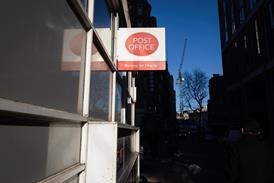
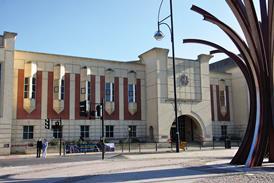
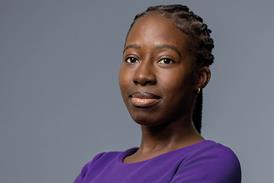
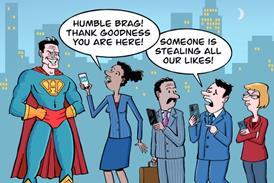
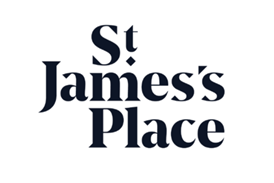
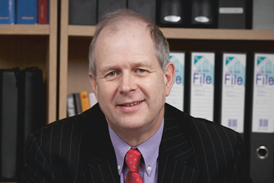










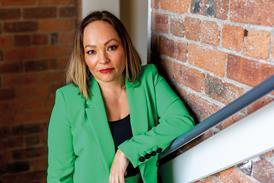






No comments yet